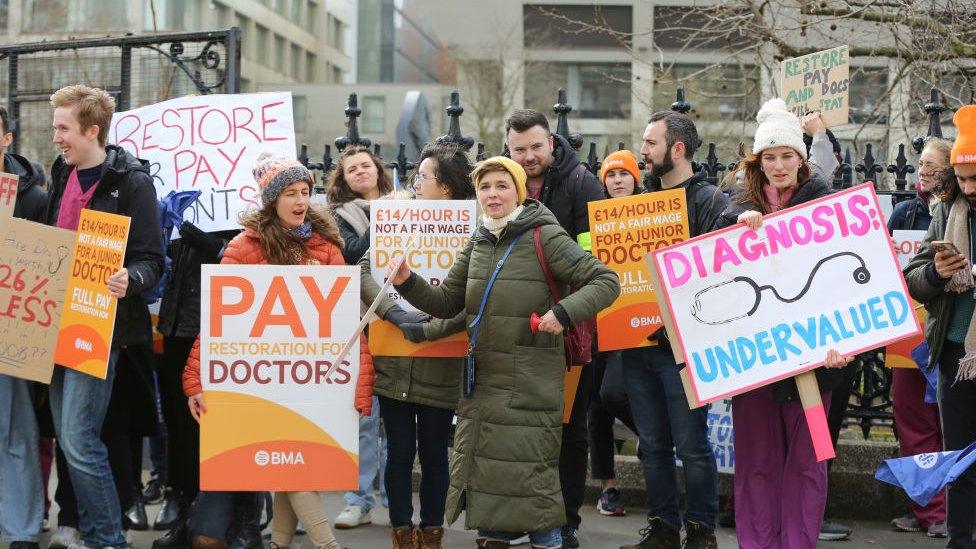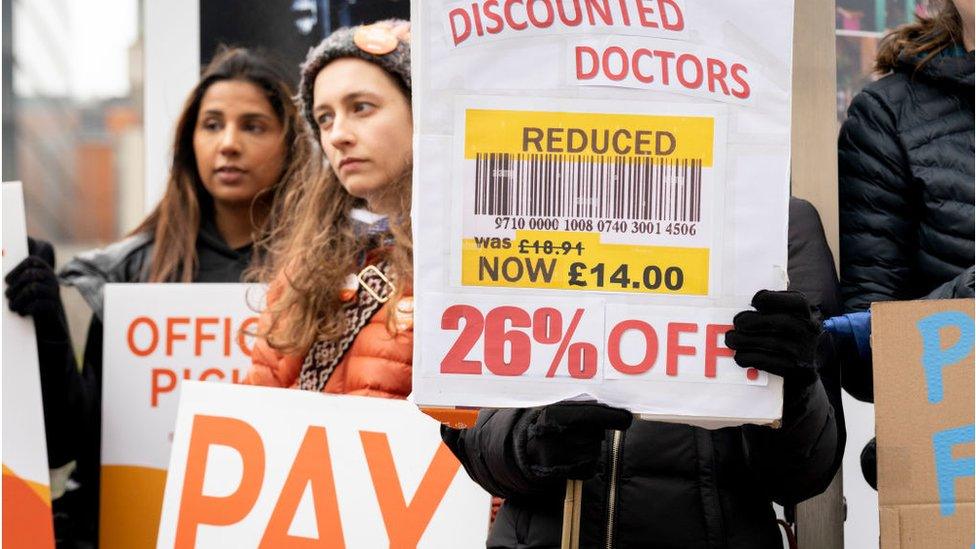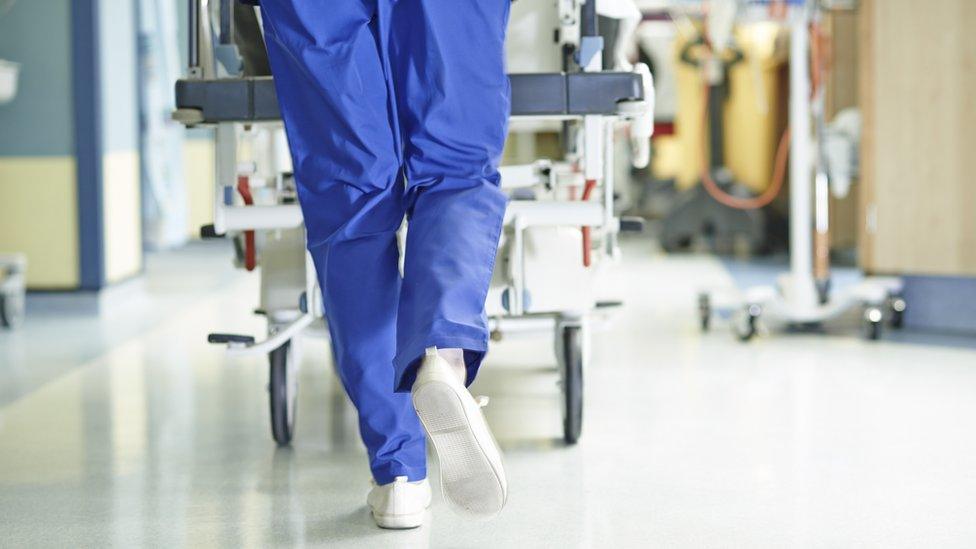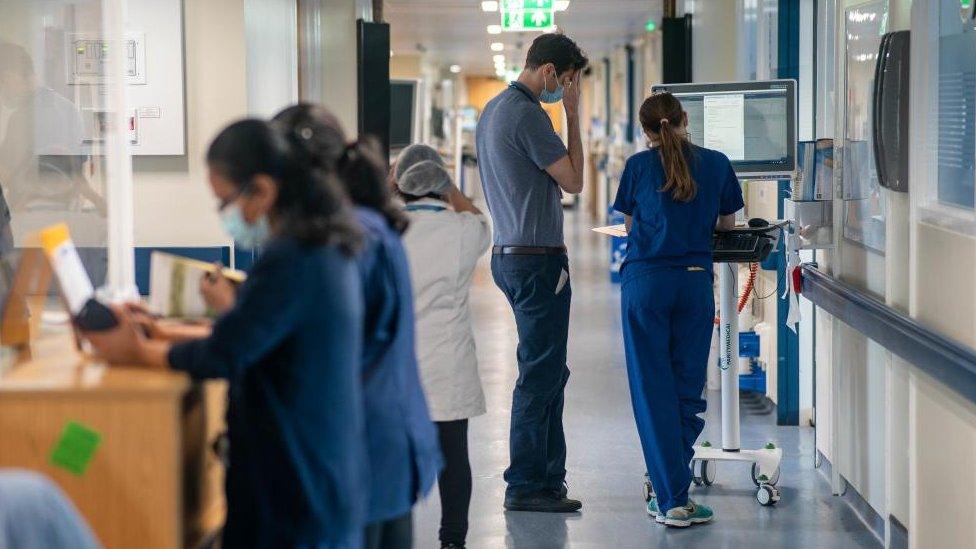Junior doctor strike: NHS chief says hospitals under major pressure
- Published

Junior doctors form a picket line outside St Thomas' Hospital in London
Hospital emergency departments are under severe pressure with some experiencing their "busiest Monday of the year so far", says NHS England's medical director.
With a junior doctor strike happening at the same time, Prof Sir Stephen Powis is asking the public to use services appropriately.
NHS 111 is for non-urgent needs.
Unlike during previous NHS strikes, there has been no let-up in the demand for care, say hospital representatives.
Tens of thousands of junior doctors are taking part in a three-day strike until Wednesday.
It is thought to be the most disruptive NHS strike yet.
Sir Julian Hartley, chief executive of NHS Providers which represents NHS hospitals, said: "Unlike previous strikes, it's noticeable that there has been no let-up in the demand for care.
"Senior doctors are stepping into the breach but it isn't business as usual. For hospital patients that means it's taking longer for admissions and the discharge process is also slower."

Junior doctors want a 35% payrise - something the health secretary calls "unaffordable"
Sir Julian also says ambulance handover delays are up and generally keeping services going is proving difficult for hospital staff.
"We need the government and the doctors' unions to come to an agreement quickly," he said.
Nurses, ambulance workers and physios have also staged strikes this winter, but have now paused action while talks with government happen.
Junior doctors are asking for a 35% pay rise because they say their pay has not risen in line with inflation - they argue their pay has been cut by 26% since 2008.
Health Secretary Steve Barclay has called the request "completely unaffordable".
He has said he "hugely values" the work of junior doctors and wants negotiations to be "fair", but currently no constructive talks have taken place between the government and the British Medical Association union.
What should you do?
Sir Stephen says people should use GP surgeries, pharmacies and the NHS 111 phone service if their needs are non-urgent and attend any hospital appointments unless contacted otherwise.
But those who need emergency care should continue to call 999. Consultants and senior doctors are being brought in to cover, but it means planned operations are having to be cancelled.
"As we see the impact of the most significant strike disruption in the history of the NHS, we're really grateful to the public for using services appropriately," he adds in a statement.
Junior doctors represent nearly half of the medical workforce in England - those who have just graduated university through to some with 10 years of experience.
Two-thirds of junior doctors are members of the British Medical Association.

How have you been affected by any issues raised here? You can share your experience by emailing haveyoursay@bbc.co.uk, external.
Please include a contact number if you are willing to speak to a BBC journalist. You can also get in touch in the following ways:
WhatsApp: +44 7756 165803, external
Tweet: @BBC_HaveYourSay, external
Or fill out the form below
Please read our terms & conditions and privacy policy
If you are reading this page and can't see the form you will need to visit the mobile version of the BBC website to submit your question or comment or you can email us at HaveYourSay@bbc.co.uk, external. Please include your name, age and location with any submission.

Related topics
- Published2 March 2023

- Published24 February 2023

- Published18 May 2023